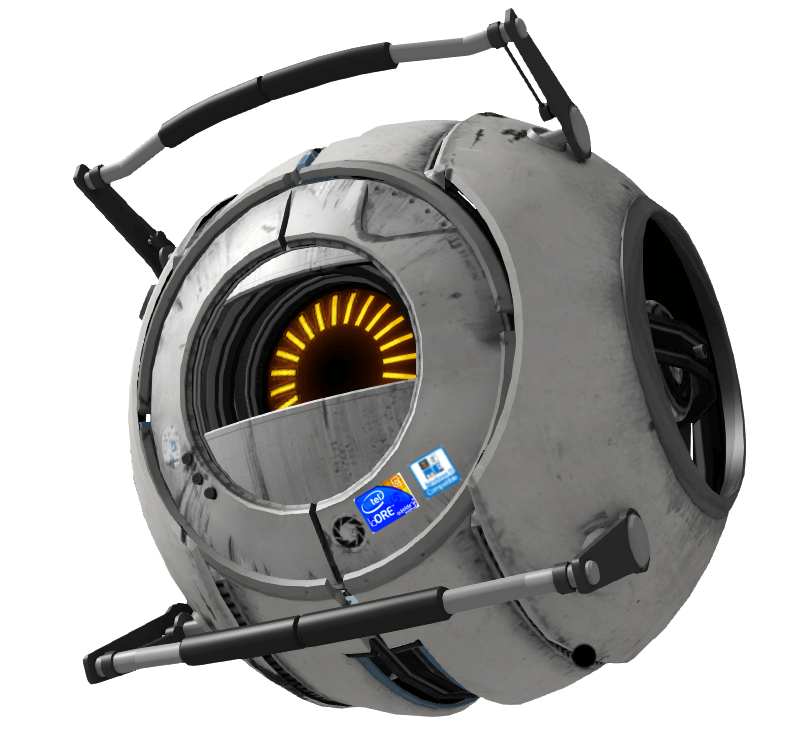Original question by @POTOOOOOOOO@reddthat.com
It works for me.
Because I like compiling everything from source for a 0.2% speed improvement
CachyOS, cause its Minimal and “Fast”(maybe) ik i can try out normal Arch but I dont wanna rebuild my system everytime I mess something up + Arch based distro its better then Arch Install(in my opinion)
I use Arch, btw, but I don’t consider it the best (yes I do.) I could easily transition to Fedora, for example (I would never do that,) and be completely happy (I would rather continually hit my head with the metal stapler gun on my desk.)
Does what I want and gets out of my way.
Bazzite just works, it runs every game I have with zero fuss, it’s easy to run Windows programs / emulators / local LLMs, AND it’s basically unbreakable.
I can’t claim it’s the best, but it’s the best for me right now.
On a gaming laptop I’m using Aurora because KDE Plasma btw (:
Bazzite has a KDE version too. I think it is more popular then the GNOME version of bazzite actually. At least according to the results of the latest steam survey
Yep I use KDE-flavored Bazzite and actually forgot GNOME was even offered! It works deliciously. Came over from Windows last winter finally and boy, the UI alone is just so much nicer.
I had avoided KDE for years due to some multi-screen resolution issues back in the day.
I’d be running gnome, and install a half dozen plugins to make it look and feel closer to Windows It was just a personal preference. Every other update some plugin I was using would be broken. I’d replace it with another plug-in or uninstall it and wait for a fix. Fight fight fight fight fight fight. Some number of years later I tried KDE again, and I realized that it did exactly what I was trying to do in Gnome but it did it out of the box.
I don’t have anything against Gnome. The same way I don’t have anything against OS X’s “window manager” or even Windows 11’s “window manager” they’re just not my preference.
Bottom left navigation, thin, stacked app indicators, bottom right tray. Fractional scaling, widgets.
I haven’t bothered to actually search or troubleshoot yet, but since I’m here - have you had any problems with power management failing to automatically turn screens off when idle?
I don’t get consistent behavior there it seems (AKA it leaves them on when it shouldn’t), but that’s I think the only significant oddity I’ve found in the ~7 months or so I’ve been running Bazzite. And like I said I’ve done basically nothing yet to try to solve it, just wondering if you’ve seen it. I have the issue on a desktop and a laptop, using entirely different monitors (not even same brand) FWIW.
I haven’t had any problems like that, but I generally don’t leave my screen on. So perhaps I would have this issue, but just never notice it because of how I use the device.
I’m very conscious of energy use, I almost always manually set my laptop to sleep if I’m leaving it idle for a while.
It isn’t, it is the least bad
Which technically makes it the best, doesn’t it?
No because best implies it’s good. Least bad doesn’t transmit the same message as best.
Yeah that’s fair.
Debian. It works so well that I never even looked at different distros during the last 20 years or so…
To each its own in accordance to their needs. Debian is great unless you want to add proprietary stuff like GPUs. That’s the whole reason so many distros (e.g. Ubuntu) raised to fame and gained popularity while being based on Debian… That, and the fact that until recently Debian installation guide was not updated and called to download an ISO to be burned in 1-2 CDs… that was so f*ing unclear. Of course you can use a pendrive, but if the guide talks about CDs… that’s just confusing to newbies. None pointed that out, but to me is like being even less friendly than Arch :P Just my opinion. That said, I have been using Debian based distros for most of my time, even today (desktop PC with MX ‘ahs’.)
Debian’s documentation can be pretty awful. The Nvidia Driver install guide in particular could use a revamp.
Mint is Ubuntu minus everything that makes Ubuntu annoying. That’s why I like it.
I considered to go back to Debian but… eh, I’m too old and impatient for that. Nowadays I mostly want things that work out of the box.
Do things not work out of the box on debian?
From what I remember*, there was always some rough corner. Such as the wi-fi, or the graphics card. Sure, Stable was rock solid, but you always needed something from Testing; and Testing in general was overall less stable than Ubuntu or Mint.
*This was years ago, so it might be inaccurate as of 2025.
Linux Mint has a Debian Edition (LMDE) if you ever wanted a Debian that Just Works.
I did use the first LMDE for some time, and I loved it, it’s a great distro. I don’t recall why I went for the Ubuntu-based Mint later on, I think it was the PPAs?
The Ubuntu version does have all of Mint’s tools and stuff. Pretty sure the Debian edition is missing the Driver Manager and maybe some others.
All the good parts of Ubuntu have long since been integrated upstream. And Debian’s release cycle has increased a lot so you’re not stuck with old versions anymore.
Hannah Montana Linux
No further arguments needed.
I don’t know that it is objectively the best - but its the best fit for me right now (LMDE).
I’ve been enjoying EndeavourOS over the past three years. It works wonderfully out of the box at default settings, and was really easy for me to use and set up to my liking with minimal know-how needed.
It also works really well on the variety of machines I have in my home. My desktop, modded Chromebook, and my husband’s laptop.
It’s allowed me to get more familiar and confident with the command line, and enough so that I’ve switched to Sway from XFCE (and previously KDE).
NixOS. My entire config is source-controlled and I can easily roll back to a previous boot image if something breaks like cough Nvidia drivers. I also use it for my home router and all self-hosted services.
maniacally laughs while trying to avoid eye contact with 19k lines of nix config
Out of all the ways that I have tried in the past, to reproduce not just the initial state, but also the ongoing changes of a disto (ansible, saltstack, chef, bunch of Shell scripts) — nix is by far the shortest. With all of these technologies I would never have dreamed to do this for a single Maschine. But now it’s not only possible, but actually gasp enjoyable!
Mind you, if that is not the problem you want to solve, maybe install just the nix package manager in addition to your distribution, and learn to enjoy it without having to run your whole distribution this way.
You misunderstand! It has also turned into basically a hobby (and recently, a job, lol) to manage nix configs.
Those 19k lines are clean, well-structured and DRY, and do describe every little thing about ca. 30 machines.
I’m convinced it isn’t.
Mine’s the best, because it fits with what I want. Might not be your best, but it’s mine.














